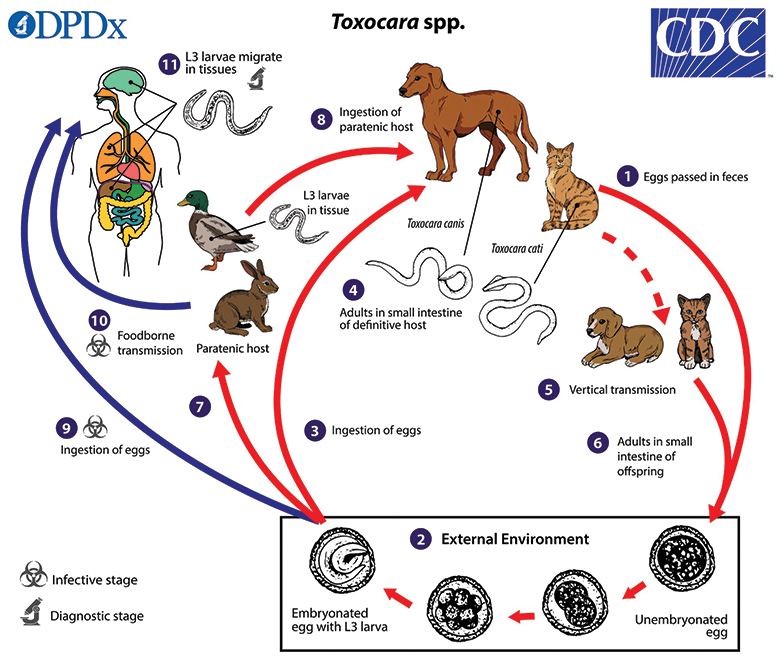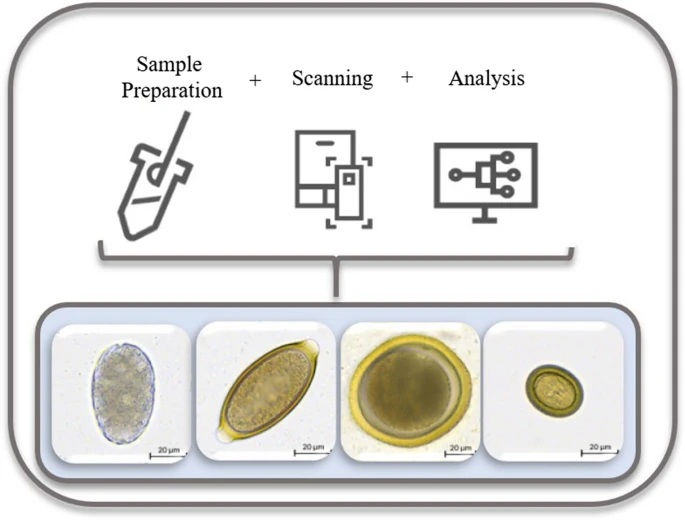It’s always wise to bring in a fecal at least once a year for your veterinarian. Why? To screen for parasites! Parasites such as roundworms and tapeworms commonly infect young puppies and kittens. Most breeders and shelters will preemptively deworm the animals before they go to their new home, but certain species of parasites have an innate resistance to specific dewormer. Sometimes you may not see the adult worms in the stool, but microscopic eggs of the parasites can still be shed in the feces. Even adult dogs and cats can still risk contracting parasites if they ingest the feces of wildlife or other animals infested with parasites. That is why it’s a good idea to have your veterinarian screen a fecal to check for any residual parasite infestations and get your pet on the appropriate dewormer to rid the animal of the worms.

Most times, animals will not show clinical signs of a parasite infestation, but in more severe cases, animals can display signs of vomiting, diarrhea, dehydration, stunted growth and lethargy. Not only can the fecal check for parasites, but the fecal can also be used to screen for certain species of protozoa. Giardia and Coccidia are two of the most common protozoal infestations we see in pets. These protozoa are naked to the visible eye in the animal’s excrements and clinical signs can be very similar to a parasite infestation (vomiting, diarrhea, weight loss, and dehydration). Fortunately there are medications that can cure the animal of the protozoa. Your veterinarian will gladly discuss the treatment protocol with you if you ever run into this situation. So bottom line is you should have annual fecal screenings in your pet.


Recent Comments